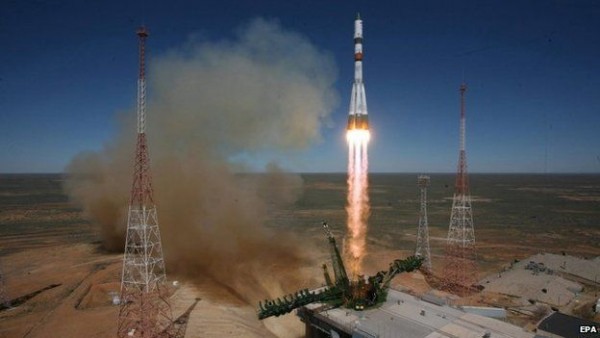
A Russian spacecraft that is tumbling around the Earth after it malfunctioned en route to the International Space Station (ISS) could remain in orbit for more than a week before crashing down to Earth.
Thomas Reiter, director of human spaceflight and operations at the EuropeanSpace Agency, said that if Russian engineers could not regain control of the stricken vessel it could spiral down to Earth within the next 10 days.
The 7-metre-long Progress 59 vessel malfunctioned soon after reaching orbit on Tuesday and went into an uncontrolled spin. Flight controllers have failed to establish two-way communications with the spacecraft as it passes over Russian ground stations.
An official Russian space agency statement is expected later on Wednesday. An official familiar with the situation told Agence France-Presse: “It has started descending. It has nowhere else to go. It is clear that absolutely uncontrollable reactions have begun.”
Igor Komarov, head of Roscosmos, the Russian space agency, was quoted by agency LifeNews as saying: “A safe docking with the ISS is not possible. We are working out different options for a water landing.”
The Progress capsule is used to carry food, water, fuel and other supplies to the space station. Once it has been unloaded, it is designed to be jettisoned in a controlled re-entry over the southern Pacific that ensures any fragments that do not burn up in the atmosphere land in the ocean.
The concern is now that if the spacecraft falls back to Earth on an uncontrolled path some fragments may fall on land. The danger to people is slim: more than two-thirds of the Earth’s surface is covered by water and only 3% of the land is heavily populated.
“Re-entry is normally done over the south Pacific to avoid any debris falling on firm terrain,” said Reiter, a former astronaut. “Not everything will burn up and if it’s an uncontrolled entry then there could be fragments that will hit the surface.
“If my colleagues can’t get it under control, that could be within a week, maybe one and a half weeks at most.”
The Russian flight controllers have a chance to make contact with the capsule every 90 minutes when it soars overhead.
Reiter said he had instructed the space agency’s European space operations centre in Darmstadt to track the spacecraft so that teams can predict when and where the spacecraft will come down if it cannot be rescued.
The Guardian

Leave a Reply
You must be logged in to post a comment.